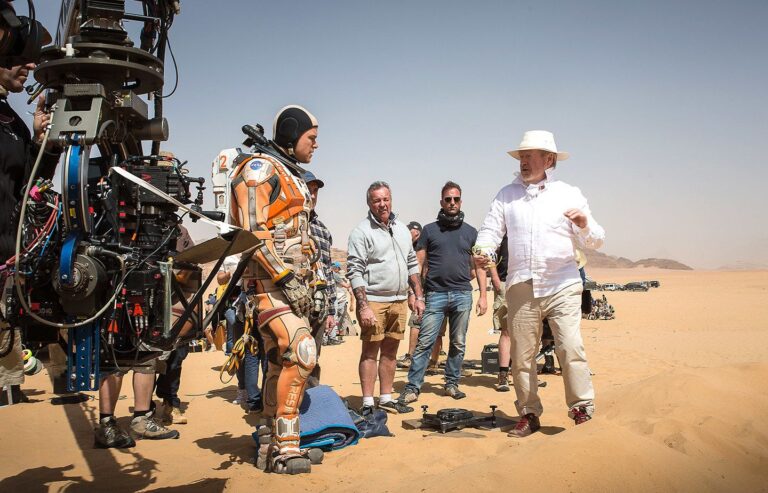Introduction:
Mars has always captivated human imagination, drawing filmmakers to explore its mysteries and challenges. Movies about Mars often blend science with fiction, giving audiences an immersive experience of space travel, alien life, and the Red Planet’s harsh landscapes. From classics like The War of the Worlds to modern blockbusters like The Martian, Movies Mars have evolved, reflecting advances in space science and changes in society’s views of space exploration. This article dives into Mars’ representation in cinema, highlights key movies, and examines the accuracy and impact of these films.
1. The Fascination with Mars in Cinema
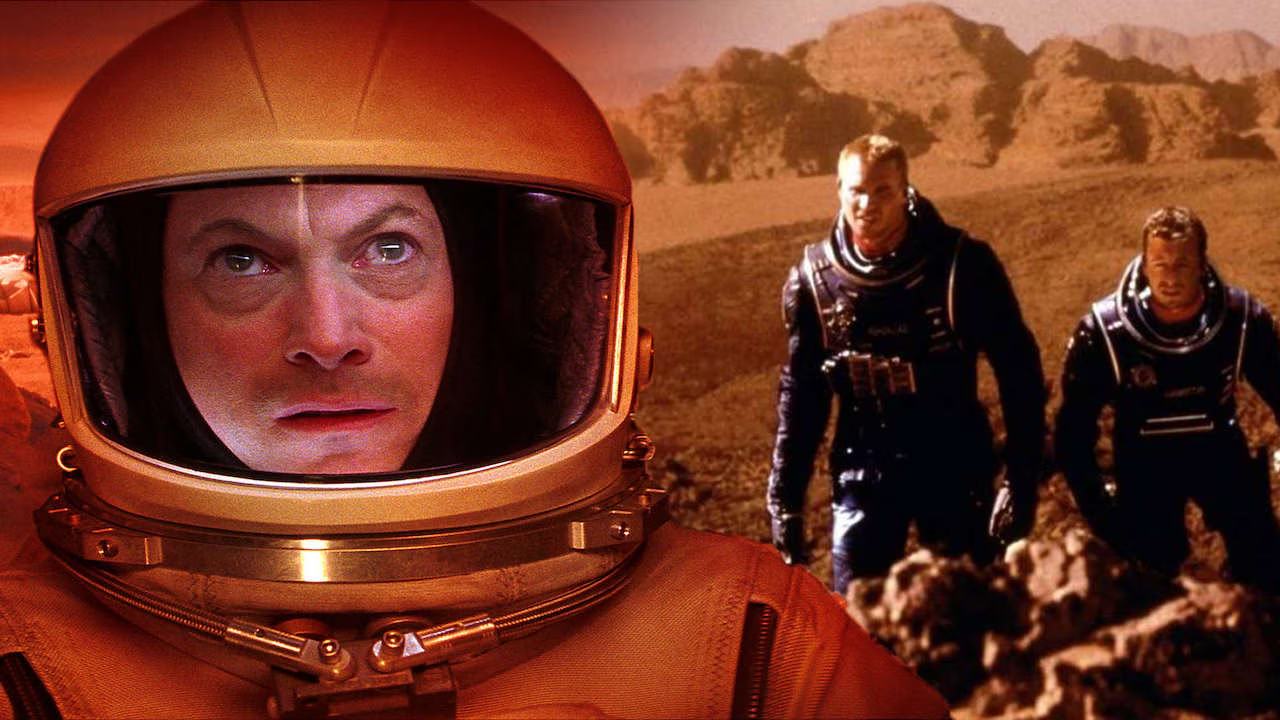
Mars has a long-standing allure in both science and popular culture. As the closest planet with the potential to support human life, Mars has spurred curiosity and inspired countless stories about alien civilizations, scientific expeditions, and humanity’s quest for survival. In movies, Mars represents the unknown—an untouched frontier for adventure and the possibility of extraterrestrial life. Mars-themed films often embody themes of resilience, curiosity, and survival, reflecting humanity’s longing for exploration.
Since the early days of cinema, filmmakers have used Mars as a canvas for imagination and speculation. Early films often portrayed Mars as home to advanced civilizations or alien species, giving viewers a sense of mystery and wonder. Over time, as science revealed more about Mars’ barren, hostile environment, the focus shifted to realistic portrayals of human missions and survival challenges.
2. Popular Mars-Themed Movies and Their Impact
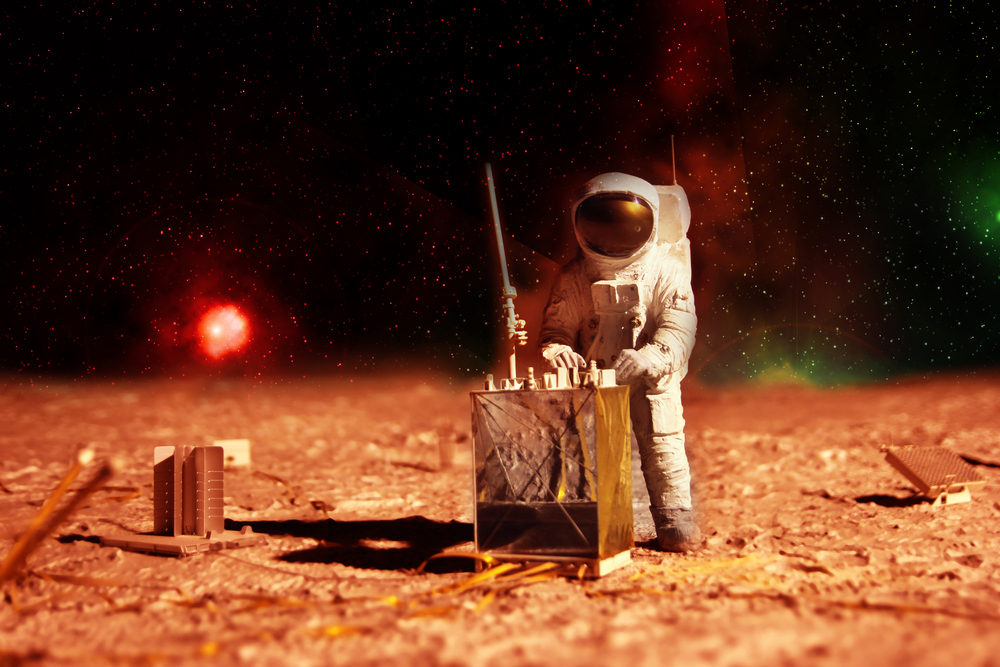
Several iconic Movies Mars have left a lasting mark on cinema, each bringing a unique perspective on what it might be like to visit or inhabit Mars.
The War of the Worlds (1953 and 2005)
Adapted from H.G. Wells’ classic novel, The War of the Worlds tells the story of a Martian invasion of Earth, depicting Martians as a formidable, advanced race intent on conquering humanity. The original 1953 adaptation and the 2005 remake by Steven Spielberg both capture the terror and helplessness humans might feel if alien life from Mars were to arrive with hostile intentions.
This story not only popularized the idea of Martians as otherworldly threats but also laid the groundwork for Mars-themed alien invasion movies. Though it doesn’t depict Mars directly, The War of the Worlds fueled the public’s interest in Mars and the possibilities of life beyond Earth.
Total Recall (1990)
Paul Verhoeven’s Total Recall, based on Philip K. Dick’s short story “We Can Remember It for You Wholesale,” takes audiences to a Mars colony. Starring Arnold Schwarzenegger, this film explores themes of identity, memory manipulation, and corporate control. Mars serves as a symbol of freedom and rebellion against corporate greed, with scenes showcasing the planet’s red landscape, domed colonies, and alien artifacts.
While not scientifically accurate, Total Recall uses Mars as a backdrop for futuristic and philosophical exploration. It reflects society’s fascination with the idea of Mars as a distant, dangerous place where mysteries and conspiracies await.
Mission to Mars (2000)
Mission to Mars, directed by Brian De Palma, presents a story about humanity’s first attempt to explore Mars and the unexpected discovery of ancient life. When a group of astronauts encounters a mysterious artifact, they uncover clues about Mars’ history and its potential connection to human life on Earth.
Though Mission to Mars received mixed reviews, it introduced the idea of finding ancient life or civilizations on Mars, a theme that has become popular in sci-fi movies. The film emphasizes Mars’ role as a potential cradle for life, sparking curiosity about the planet’s past and what secrets it might hold.
Red Planet (2000)
Released the same year as Mission to Mars, Red Planet follows a group of astronauts sent to Mars to find solutions for Earth’s environmental decline. When their mission goes awry, the team faces harsh survival challenges, including malfunctioning equipment and hostile environments. Red Planet is one of the first films to attempt a more realistic portrayal of Mars as a barren, hostile world, lacking the convenience of breathable air or easily accessible resources.
Although Red Planet didn’t achieve box-office success, it was notable for focusing on the technical and environmental obstacles of a Mars mission. This grounded approach inspired subsequent movies that would explore survival themes on Mars more realistically.
The Martian (2015)
Directed by Ridley Scott and based on Andy Weir’s novel, The Martian is widely praised for its scientific accuracy and thrilling survival narrative. The film follows astronaut Mark Watney, stranded on Mars and presumed dead after a storm. Using his knowledge as a botanist and mechanical engineer, he improvises ways to survive, growing potatoes in Martian soil and generating water.
The Martian is celebrated for its realistic portrayal of the challenges involved in a Mars mission, from communication delays to limited resources. NASA’s consultation helped the film achieve a high degree of scientific accuracy, inspiring public interest in space exploration and demonstrating the potential for humans to adapt and survive on Mars. It remains one of the most beloved Mars-themed movies and a reference for realistic space exploration cinema.
3. Scientific Accuracy in Mars Movies
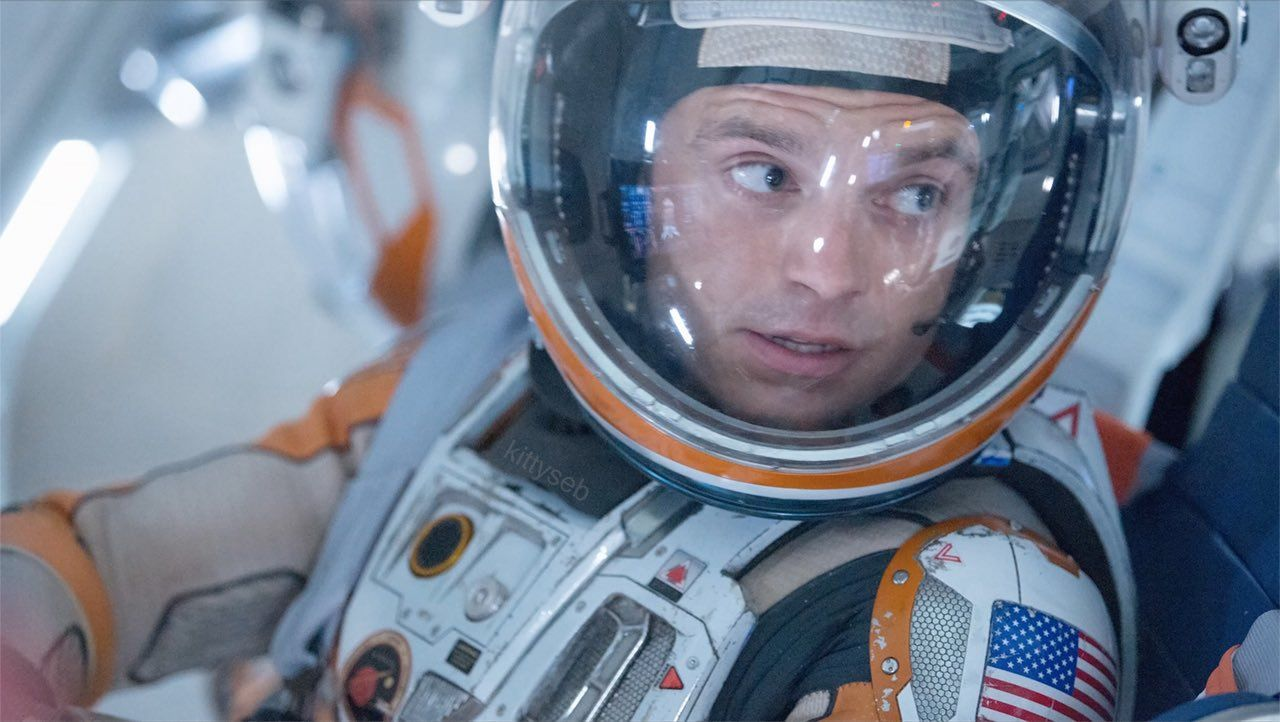
Movies Mars have evolved from highly speculative portrayals to attempts at realism based on current scientific knowledge. Early films, constrained by limited scientific understanding, portrayed Mars as a habitable planet with thriving alien civilizations. As knowledge advanced, filmmakers adapted, creating movies that align more closely with scientific facts about Mars’ atmosphere, terrain, and climate.
Atmosphere and Landscape
Mars has a thin atmosphere, primarily composed of carbon dioxide, making it impossible for humans to breathe without support. The Martian effectively portrayed this by equipping characters with life-support suits whenever they ventured outside their habitat. Additionally, the film’s depiction of Mars’ arid, rocky terrain mirrors actual photos from Mars rovers, bringing a high level of realism to its landscape portrayal.
Survival and Resourcefulness
Movies like The Martian highlight the resourcefulness needed to survive on Mars. Realistic portrayals of limited water and food supplies, reliance on solar power, and the need to grow food emphasize the importance of self-sufficiency on Mars. NASA’s real-life experiments in growing food in Martian-like soil and developing energy-efficient habitats echo the solutions presented in the film.
The Challenges of Space Travel
Space travel to Mars is fraught with challenges, from prolonged radiation exposure to psychological stress. While many Mars movies gloss over these issues for dramatic purposes, recent films have attempted to show the physical and emotional toll that long-duration space missions might have on astronauts. The Martian, for instance, captures the isolation and determination required for survival in an uninhabited, remote world.
4. The Future of Mars in Cinema
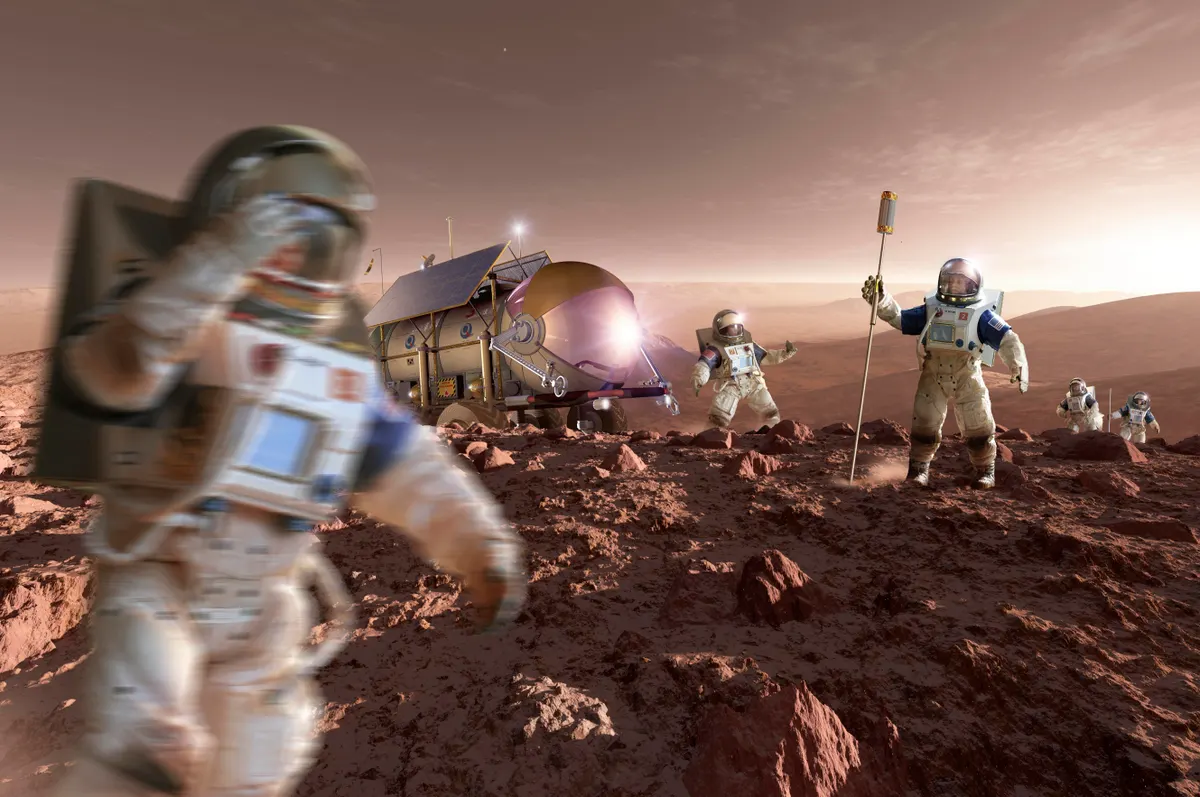
As humanity inches closer to a real Mars mission, Mars-themed movies are likely to become even more realistic and inspirational. Advances in technology and AI could allow filmmakers to create even more accurate and immersive depictions of Mars. Future movies might also focus on new aspects of Mars exploration, such as long-term colonization, genetic adaptation, and ethical considerations of transforming Mars to support human life.
As private companies like SpaceX plan Mars missions, filmmakers may explore Mars through the lens of commercial space travel, depicting the potential for a future where Mars becomes a tourist destination or even a new home for humanity. The blend of reality and speculative fiction will continue to shape how Mars is portrayed in cinema, reflecting both scientific advancements and society’s evolving dreams of interplanetary exploration.
Conclusion:
Movies Mars have captivated audiences for decades, offering a thrilling glimpse into what it might be like to explore and survive on the Red Planet. From speculative portrayals of alien civilizations to realistic survival stories, these films capture the enduring allure of Mars. Movies like The Martian set a new standard for scientific accuracy, while earlier classics like The War of the Worlds showcase the imaginative potential of Mars as a narrative device. As technology advances and humanity moves closer to reaching Mars, the Red Planet will continue to inspire filmmakers and audiences alike, representing both the challenges and the possibilities of our future in space.


